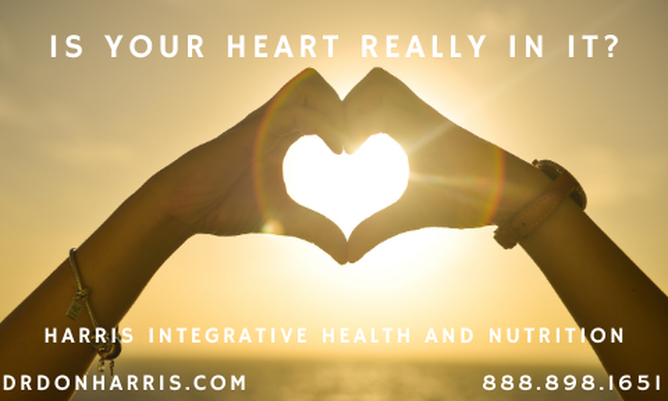|
Cardiovascular disease (CVD) is the leading cause of death in Western countries, representing almost 30% of all deaths worldwide. Evidence shows the effectiveness of healthy dietary patterns and lifestyles for the prevention of CVD. Furthermore, the rising incidence of CVD over the last 25 years has become a public health priority, especially the prevention of CVD (or cardiovascular events) through lifestyle interventions. Current scientific evidence shows that Western dietary patterns compared to healthier dietary patterns, such as the ‘Mediterranean diet’ (MeDiet), leads to an excessive production of proinflammatory cytokines associated with a reduced synthesis of anti-inflammatory cytokines. In fact, dietary intervention allows better combination of multiple foods and nutrients. Therefore, a healthy dietary pattern shows a greater magnitude of beneficial effects than the potential effects of a single nutrient supplementation. This review aims to identify potential targets (food patterns, single foods, or individual nutrients) for preventing CVD and quantifies the magnitude of the beneficial effects observed. On the other hand, we analyze the possible mechanisms implicated in this cardio protective effect.
1. Serve more vegetables, fruits, whole grains, and legumes. Just about everyone could stand to eat more plant-based foods. They're rich in fiber and other nutrients, and they can taste great in a salad, as a side dish, or as an entree. Watch that you don't use too much fat or cheese when you prepare them. 2. Choose fat calories wisely by:
3. Serve a variety of protein-rich foods. Balance meals with lean meat, fish, and vegetable sources of protein. 4. Limit cholesterol. Cholesterol in foods, found in red meat and high-fat dairy products, can raise blood cholesterol levels, especially in high-risk people. 5. Serve the right kind of carbs. Include foods like brown rice, oatmeal, quinoa, and sweet potatoes to add fiber and help control blood sugar levels. Avoid sugary foods. 6. Eat regularly. This helps someone with heart disease control blood sugar, burn fat more efficiently, and regulate cholesterol levels. 7. Cut back on salt. Too much salt is bad for blood pressure. Instead, use herbs, spices, or condiments to flavor foods. 8. Encourage hydration. Staying hydrated makes you feel energetic and eat less. Encourage your loved one to drink 32 to 64 ounces (about 1 to 2 liters) of water daily, unless their doctor has told them to limit fluids. 9. Keep serving sizes in check. It can help to use smaller plates and glasses, and to check food labels to see how much is in a serving, since it's easy to eat more than you think. Some guidelines:
Causes of sleep deprivation
Sleep deprivation is caused by consistent lack of sleep or reduced quality of sleep. Getting less than 7 hours of sleep on a regular basis can eventually lead to health consequences that affect your entire body. This may also be caused by an underlying sleep disorder. Your body needs sleep, just as it needs air and food to function at its best. During sleep, your body heals itself and restores its chemical balance. Your brain forges new connections and helps memory retention. Without enough sleep, your brain and body systems won’t function normally. It can also dramatically lower your quality of life. Noticeable signs of sleep deprivation include: Stimulants, like caffeine, aren’t enough to override your body’s profound need for sleep. In fact, these can make sleep deprivation worse by making it harder to fall asleep at night. This, in turn, may lead to a cycle of nighttime insomnia followed by daytime caffeine consumption to make up for the lost hours of shut-eye. Behind the scenes, chronic sleep deprivation can interfere with your body’s internal systems and cause more than just the initial signs and symptoms listed above. Central nervous system Your central nervous system is the information highway of your body. Sleep is necessary to keep it functioning properly, but chronic insomnia can disrupt how your body usually sends information. During sleep, pathways form between nerve cells (neurons) in your brain that help you remember new information you’ve learned. Sleep deprivation leaves your brain exhausted, so it can’t perform its duties as well. You may also find it more difficult to concentrate or learn new things. The signals your body send may also be delayed, decreasing your coordination and increasing your risk for accidents. Sleep deprivation also negatively affects your mental abilities and emotional state. You may feel more impatient or prone to mood swings. It can also compromise decision-making processes and creativity. If sleep deprivation continues long enough, you could start having hallucinations — seeing or hearing things that aren’t there. A lack of sleep can also trigger mania in people who have bipolar disorder. Other psychological risks include:
Microsleep is out of your control and can be extremely dangerous if you’re driving. It can also make you more prone to injury due to trips and falls. Immune system While you sleep, your immune system produces protective, infection-fighting substances like cytokines. It uses these substances to combat foreign invaders such as bacteria and viruses. Cytokines also help you sleep, giving your immune system more energy to defend your body against illness. Sleep deprivation prevents your immune system from building up its forces. If you don’t get enough sleep, your body may not be able to fend off invaders, and it may also take you longer to recover from illness. Long-term sleep deprivation also increases your risk for chronic conditions, such as diabetes and heart disease. Respiratory system The relationship between sleep and the respiratory system goes both ways. A nighttime breathing disorder called obstructive sleep apnea (OSA) can interrupt your sleep and lower the quality. As you wake up throughout the night, this can cause sleep deprivation, which leaves you more vulnerable to respiratory infections like the common cold and flu. Sleep deprivation can also make existing respiratory diseases worse, such as chronic lung illness. Digestive system Along with eating too much and not exercising, sleep deprivation is another risk factor for becoming overweight and obese. Sleep affects the levels of two hormones, leptin and ghrelin, which control feelings of hunger and fullness. Leptin tells your brain that you’ve had enough to eat. Without enough sleep, your brain reduces leptin and raises ghrelin, which is an appetite stimulant. The flux of these hormones could explain nighttime snacking or why someone may overeat later in the night. A lack of sleep can also make you feel too tired to exercise. Over time, reduced physical activity can make you gain weight because you’re not burning enough calories and building muscle mass. Sleep deprivation also prompts your body to release higher levels of insulin after you eat. Insulin controls your blood sugar level. Higher insulin levels promote fat storage and increase your risk for type 2 diabetes. Cardiovascular system Sleep affects processes that keep your heart and blood vessels healthy, including your blood sugar, blood pressure, and inflammation levels. It also plays a vital role in your body’s ability to heal and repair the blood vessels and heart. People who don’t sleep enough are more likely to get cardiovascular disease. One analysis linked insomnia to an increased risk of heart attack and stroke. Endocrine system Hormone production is dependent on your sleep. For testosterone production, you need at least three hours of uninterrupted sleep, which is about the time of your first REM episode. Waking up throughout the night could affect hormone production. This interruption can also affect growth hormone production, especially in children and adolescents. These hormones help build muscle mass and repair cells and tissues. The pituitary gland releases growth hormones continuously, but sleep and exercise also help induce the release of this hormone. Treatment for sleep deprivation The mos t basic form of sleep deprivation treatment is getting more sleep. This is often easier said than done, especially if you’ve been deprived of precious shut-eye for several weeks or longer. After this point, you may need help from your doctor or a sleep specialist who, if needed, can diagnose and treat a possible sleep disorder. Sleep disorders can make it difficult to get quality sleep at night. They can also increase your risk for the above effects of sleep deprivation on the body. The following are the most common types of sleep disorders:
Prevention The best way to prevent sleep deprivation is to make sure you get adequate sleep. Follow the recommended guidelines for your age group, which is 7 to 9 hours for most adults ages 18 to 64. Other ways you can get back on track with a healthy sleep schedule include:
Is There More to Achieving and Maintaining Health Than Just Science I have, for years, avoided adding this section to my writings. I cannot ignore the importance of this crucial component to one’s health for politically correct reasons. The fact is the more years that pass, and the more people I treat, it has become so obvious that they are spiritually drained. It is amazing, how many of my clients enter my program whose spirits are broken. They are walking around without hope and happiness. Hatred, War, Violence, Disease, Financial Worries, Political Discourse, whatever the triggers, they are devastating. People, to put it mildly, are miserable. I would go so far to say many people are just existing, not living. Hope, Positive Outlooks, Forgiveness are diminishing. All of this has added up to break the spirit of many. We have guidelines to conduct our lives and we see others as well as ourselves break these daily. Over time, the destructive process of going against what is in store for us has paid a treacherous price. Most of my clients just “don’t care”. We need to work on us as Spiritual individuals and regain a belief of Hope, Charity, Love and Compassion. The unhealthy death of your spirit is a cause of disease. We are all spiritual creatures and no matter what religion we practice, spirituality is a strong component. We must regain a positive spirit and learn to practice spirituality in our daily lives. Without it we are destined to endure lives full of emptiness and despair. We are intended to have so much more in store for us, but it is up to us to identify the positive and negative that clogs the path to good health. In over 30 years of clinical practice I have been witness to many things. The one constant when it comes to my clients improving their health is; the ones who believe in something beyond the trappings of this earth do better on their program. There is something within us that when we believe in something outside of ourselves, maybe we take our health and that of others more seriously. I AM NOT saying that if you are not a spiritual person that you are destined to sickness and disease, Not at all. I am trying to state an observation that I have noticed over and over. I truly believe that believing in something other than our immediate surroundings gives us a power/energy that assists us in defeating an illness, but also gives us a higher level of commitment to achieve positive outcomes. Take this for what it is worth. I believe we are intended to live our lives full of HOPE, HAPPINESS and ultimately good HEALTH.
Intermittent fasting (IF) is a recurring dietary pattern in which individuals consume little to no calories for a prolonged period of time, such as 16 to 48 hours, followed by periods of normal energy intake. A type of IF is periodic fasting (PF), in which individuals fast for longer periods of time, such as 2 to 21 or more days, followed by normal energy intake. Time-restricted feeding (TRF) is also a type of IF; it is characterized by a restriction in caloric intake for 8 hours or fewer each day.
These different modes of fasting are used as an approach to enhance physical and mental performance based on the theory that mammals have optimally adapted to periods of fasting or starvation. IF has been shown to decrease body fat while allowing for the retention of lean body mass. It has also been shown to help modulate hormone levels, particularly insulin, leptin, and adiponectin. IF has been primarily studied for control of diabetes mellitus and polycystic ovarian syndrome, but is now receiving attention as a potential approach to cancer prevention or treatment. In vitro and in vivo animal studies suggest that PF inactivates pro-proliferative pathways, while enhancing differential stress resistance in normal cells.Combined with the theory that cancer cells are generally dependent on a highly nourishing environment with a preference for high glucose levels, called the Warburg effect, this resulted in the hypothesis that IF or PF can sensitize cancer cells to chemotherapy or other anticancer therapies. In addition, other studies have shown that fasting induces autophagy and can modulate the immune system by activating CD8 cytotoxic T cells and inhibiting T-regulatory cells. Rodent studies demonstrated that fasting prior to the administration of chemotherapy prolongs survival, decreases metastasis, and reduces toxicity. Similarly, PF prior to the administration of tyrosine kinase inhibitors further inhibits tumor growth of various different cancer types, including non-small cell lung cancer and colorectal cancer, compared with the use of the drugs alone. A systematic review that included 8 studies of IF ranging from 24 to 72 hours found that 63% of the studies (5 of the 8) found that fasting inhibited tumor growth; the remaining 3 found no significant difference in tumor growth compared with animals that were fed a normal diet. Another systematic review of several animal studies demonstrated that fasting alone (not combined with chemotherapy or radiation therapy) decreased the rate of metastasis, prolonged survival, and reduced tumor growth, as measured by weight or volume. When performed prior to chemotherapy, this systematic review also showed that animals were able to better tolerate chemotherapy with a substantial reduction in toxicities including chemotherapy-induced death. |
Archives
April 2022
Categories
All
|






 RSS Feed
RSS Feed